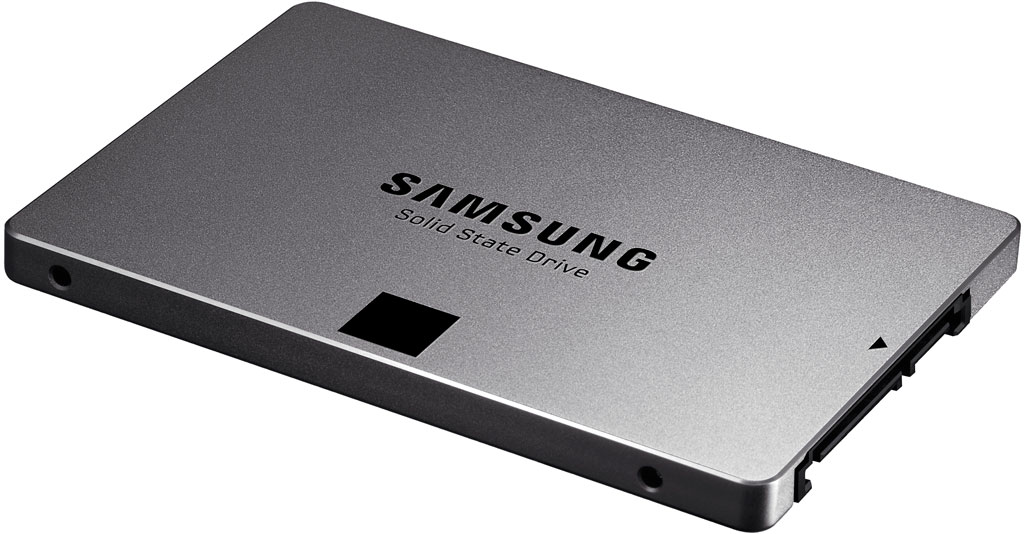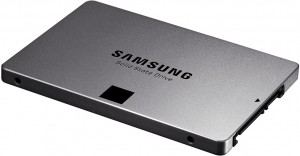
I just installed a SSD into a MacBook Pro 15″ (non-retina). Based on reviews and specs, SSD’s are significantly faster than traditional hard drives with platters inside. This applies for boot-up time, application start up times and saving/reading data.

I wanted to compare an SSD to a traditional HD and run a performance comparison test. I’m going to preface this post with a note that this test is slightly skewed due to the fact that the two computers for this comparison are not exactly identical, nor are they running the same version of OS X. But I was trying to be resourceful with the equipment that I had and at least attempt to get a rough gauge of performance. Of course, I already expect slower performance with the older machine and traditional HD.

After installing the new SSD, the first thing I noticed was the quick speed of simply booting up the computer. It took under 10-15 seconds to boot the computer up. Then just another few seconds to login and get the user environment set up. My older computer was pretty fast booting up as well, but was more in the 45-60 second range and then another 30-90 seconds to set up the user environment after logging in. This depends on the amount of start-up items you may have running, but I am making the comparison off of a cloned hard drive with exactly the same content and user account data on them.
Now to the point…
How does Serato perform with the new SSD – primarily starting the app and loading tracks, iTunes Library, crates, etc.?
Well, to be honest, unfortunately it is not as significant as I expected it to be. My old machine took about 45-50 seconds to start up Serato Scratch Live from start to completion including loading my iTunes library. It was about the same for Serato DJ as well.
The other machine with the new SSD showed only about a 15-20 second improvement. And with that small of a difference, it is difficult to determine if that is due to the SSD, faster processor or some other minor differences in my testing environments.
The Good News – Serato development optimization is awesome!
This also somewhat indicates that the people at Serato have done an excellent job designing and developing their software to optimal performance outside of hardware variables like processor, RAM and hard drive speed. If the difference is that small between the two set-ups, then it shows that most of the work is done within the software and it handles it quite well – “applause!”
They do make traditional HD’s with 7200RPM rotation rate, which is another attribute that can help performance – for much less than the price of a new SSD.
Granted it is not amazingly faster than anticipated for my DJ needs, but still can be considered a valuable improvement for a performing DJ who has ran into a situation where they had to reboot or restart Serato before a performance – much worse scenario for “during a performance” and that calls for some other remedies. It doesn’t happen often, but I think almost all software DJ’s have experienced a scenario one time or another where they had to restart or reboot due to a glitch.
So, with the premium price of a SSD still, is it worth it to upgrade?
The 1TB SSD drive I purchased was around $600, whereas a traditional 1Tb HD is about 1/6 of that at about $100. That is quite a difference especially if you’re on a budget. For users looking to improved performance with Serato only, it might not be the right thing for you. But if you want overall performance improvements with your computer especially with boot-up time or other intensive apps like design, audio production, video production, etc., then I would recommend it.
In addition to performance, there is reliability and durability. Solid state drives do not have any moving parts, no platters or stylus. This makes it a lot less prone to failure. Most hard drive failures are related to the moving parts inside. So, if you’re traveling a lot and your lap top goes through quite a bit of abuse, a SSD might also be to your benefit. Now, I’m not saying they are fail proof, so always back up your data!
*There have been reports of some SSD’s losing their data due to abrupt power failures.
Below are the specs of the tested computers and the iTunes library.
Mac Book Pro 15″
OSX Snow Leopard 10.7.6
2.53 GHz Interl Core 2 Duo
8GB 1067 MHz RAM
750GB 5400 RPM HD
Mac Book Pro 15″
OSX Lion 10.8.5
2.6 GHz Intel Core i7
8GB 1600 MHz RAM
1TB SSD
iTunes Song library
items: 26,217 (includes some video)
size: 132 GB